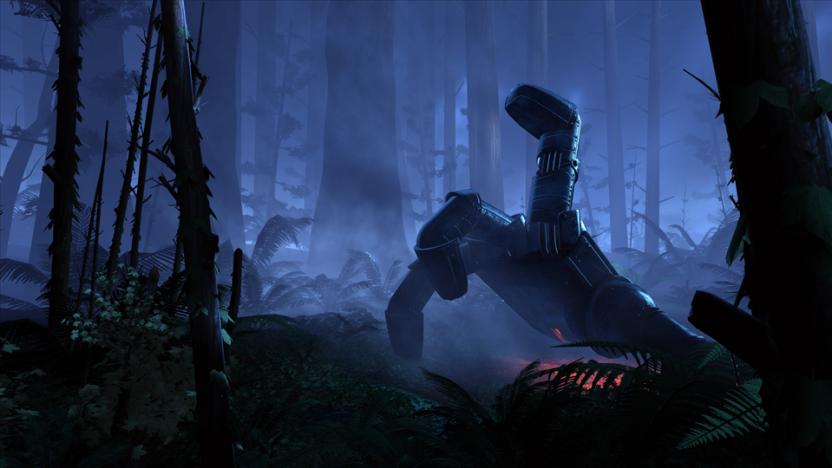MaxPlanck
Latest

ICYMI: VR yourself into a robot, plasma physics and more
#fivemin-widget-blogsmith-image-399402{display:none;} .cke_show_borders #fivemin-widget-blogsmith-image-399402, #postcontentcontainer #fivemin-widget-blogsmith-image-399402{width:570px;display:block;} try{document.getElementById("fivemin-widget-blogsmith-image-399402").style.display="none";}catch(e){}Today on In Case You Missed It: UC Berkeley is using VR, motion capture and spatial mapping to put a human 'into' the body of a robot with a technique called robotic teleoperation. The video looks like a complicated form of the claw game, but also gives a really interesting perspective.

'Henry' is Oculus' first, emotional step to making AI characters
If you've ever spent time in the company of young children watching colorful and cartoony TV shows geared to their innocence -- say something on Sprout or Nick Jr. -- then you'll know what it is to live in the world of Henry. The computer-animated virtual reality short about a lonely hedgehog is only the second to come from Oculus VR's newly founded Story Studio, an innovation lab of sorts for VR. But whereas most recent gaming- and entertainment-focused VR works have relied on cheap thrills, suspense and fear to dazzle viewers, Henry instead engages with empathy. "That was the big question for me: How are people going to connect with him?" says director Ramiro Lopez Dau of Henry's emotional bent. "So we came up with this character who has an obvious problem: He wants to hug people and he's super spiky. So that was the connection because everyone deserves a friend. And Henry doesn't have a flaw. He's just like that; he's a hedgehog. ... So it's more about, okay, there's some meaning here. You will find someone who will accept you for who you are, which is a very universal message. ... There's going to be a very strong point to feel empathy for this guy."

Oculus Story Studio is the Pixar of virtual reality
Moments before Oculus Story Studio's new virtual reality short Lost reached its satisfying climax, I found myself in a compromised position. Sequestered in a private demo booth, I was involuntarily crouched down, covering my head in a defensive position and, I should add, squealing with delight. Lost, the first computer-animated work to come from Oculus VR's new film-innovation lab, is unlike any form of interactive entertainment I've ever experienced. And it succeeds in one very crucial respect: It's endearing. "I want to create emotions that are very appealing," says Story Studio's Supervising Technical Director Max Planck. "I want you to come out of virtual reality and have a smile. Or [experience] something very touching emotionally, just like Pixar films do."

German researchers create smudge repellent coating from candle soot
While they're working on the lack of feedback, and need for exposed skin problems for touch screens, that other gripe -- dirty smudges -- could soon be wiped-out permanently. Researchers from the Max Planck Institute for Polymer Research in Mainz obviously had enough of sleeve-cleaning their devices and created a coating that could usher in a smudge-free world. The discovery comes after the team applied candle soot to glass and then coated it in silica to keep it in place. The glass is then heated to a bratwurst-baking 600 ºC for calcination, which makes the soot transparent -- somewhat handy for screens. To test, different oils and solvents were applied, but the glass' superamphiphobic properties soon fended them off. A resilient coating sounds a little more straight-forward than what Apple recently applied to patent, but until either of these see the light of day, you'd better keep that Brasso close by.

New research suggests our brains delete information at an 'extraordinarily high' rate
The mysteries of the brain may be virtually endless, but a team of researchers from two institutes in Göttingen, Germany now claim to have an answer for at least one question that has remained a puzzle: just how fast does the brain forget information? According to the new model of brain activity that the researchers have devised, the answer to that is one bit per active neuron per second. As Fred Wolf of the Max Planck Institute for Dynamics and Self-Organization further explains, that "extraordinarily high deletion rate came as a huge surprise," and it effectively means that information is lost in the brain as quickly as it can be delivered -- something the researchers say has "fundamental consequences for our understanding of the neural code of the cerebral cortex."



